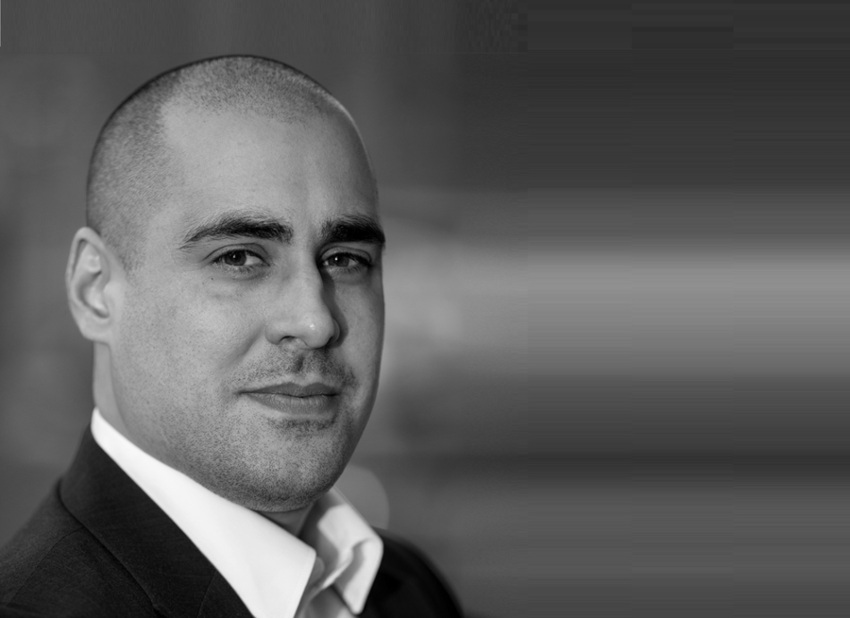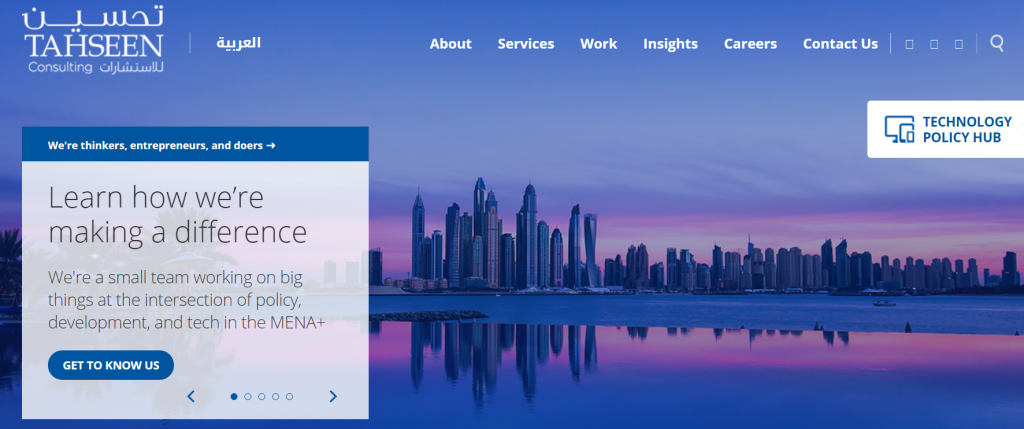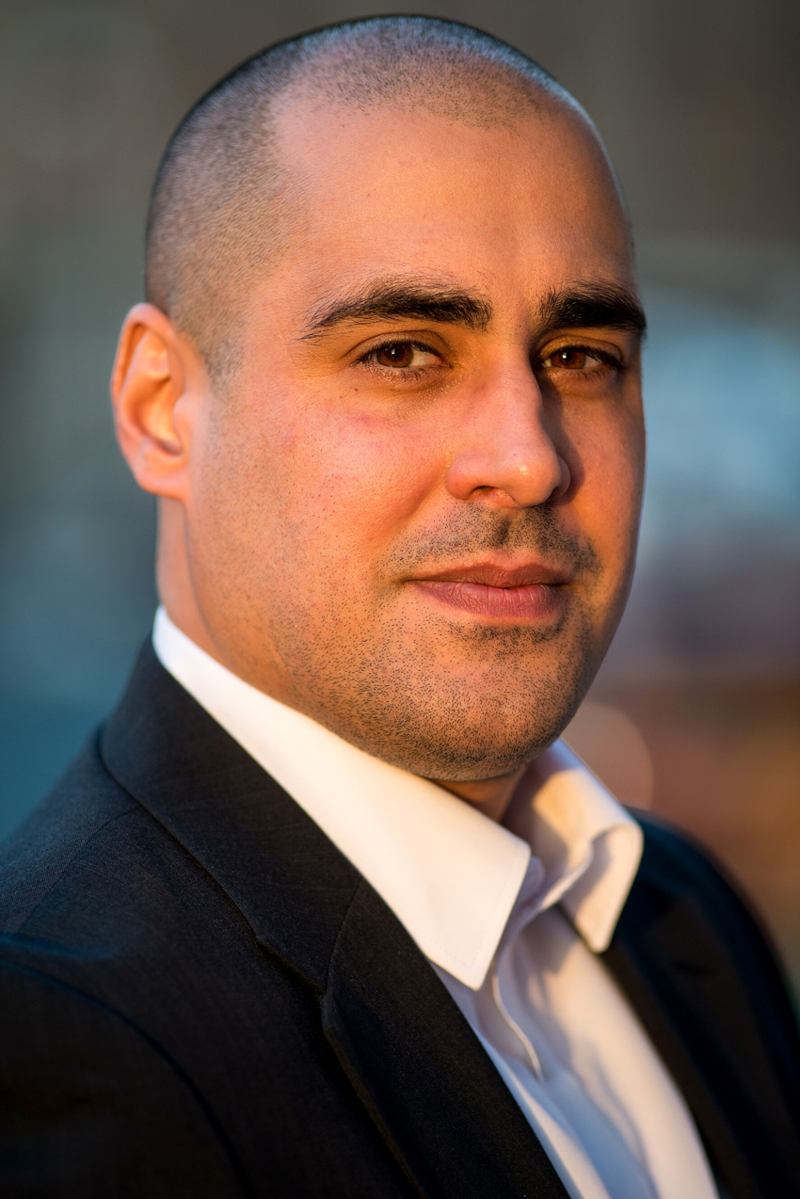
Dubai-based Tahseen Consulting has recently made an investment into Bangladeshi transportation app Jatri. We caught up Wes Schwalje, Co-founder and Chief Operating Officer of Tahseen Consulting, to get an understanding of how Tahseen Consulting operates, his views on Bangladesh market, how he thinks about early-stage investment, the key challenges and opportunities he sees in Bangladesh for founders and investors, what he thinks founders should be mindful of when raising investment and much more.
Future Startup: Could you please tell us about yourself, your background, and your journey to what you are doing today?
Wes Schwalje: I co-founded Tahseen Consulting, one of the Arab Region’s fastest-growing public sector strategy, government relations, and technology policy and investment firms. Our firm bridges management consulting, public affairs, and international development with a key underlying theme being the application of technology as an enabler of broad-based development in frontier and emerging markets.
I’ve worked in various capacities in these sectors in upwards of 50 countries in public service, the social sector, as an entrepreneur, and as an advisor to some of the fastest-growing technology companies and startups in the world.
Future Startup: What motivated you to get into early-stage startup investing? What/how do you think about investing in early-stage companies?
Wes Schwalje: Like many entrepreneurs, my entrepreneurial drive emerged early on the playground with a retail arbitrage play on candy or doing odd jobs for neighbors, grew through intrapreneurship as my career developed, and led back to entrepreneurship.
Because I am an entrepreneur, I like working with entrepreneurs – I like the hustle, can-do attitude, passion, bootstrap mentality, and drive.
I have also spent the bulk of my career in the developing world, and I really appreciate how an enterprising spirit can turn a disadvantage into an advantage and a thriving business.
I’m attracted to early-stage investing because I prefer working with founders to build things.
I believe entrepreneurs are key to transformative change in developing and frontier markets. It’s not just about dollars and cents for me.
I believe early-stage companies are the future employers of the youth of tomorrow and catalysts for socio-economic development.
Future Startup: Could you tell us about Tahseen Consulting, i.e. an overview of your operation and how you operate?
Wes Schwalje: Tahseen Consulting is a boutique firm focused on public sector delivery and government relations at the intersection of politics, policy, and technology. We are generally engaged at the C-level, by heads of state, and public figures for targeted problem-solving.
We often lend our significant background in public policy and building tech companies in developing and frontier markets to partner with great entrepreneurs and management teams to take on entrenched interests and work with governments on regulatory frameworks for business models that exist in grey areas, unregulated sectors, new industries, or which challenge highly-regulated industries.
Through our work, we have advised 8 unicorns on entering and scaling in the broader MENA, launched initiatives that have created more than one million jobs, and supported our clients to invest more than $1 billion.
We’re often thought of by our clients as a consulting A-Team – if you have a problem... if no one else can help... and if you can find us... – who often hear about us in tech hubs like Silicon Valley, London, Amsterdam, and emerging tech hubs in India and China through word of mouth, client referrals, and our co-investors.

Future Startup: You have recently invested in Bangladeshi transportation startup Jatri, what’s your observation about the Bangladesh market? Why did you choose to invest in Bangladesh? Do you see Bangladesh becoming a destination for MENA investors?
Wes Schwalje: Similar to its neighboring countries, Bangladesh is emerging as an outsourcing and software development hub due to its increasingly skilled technical workforce. At the same time, it is a developmental state which is growing quickly guided by state intervention.
Bangladesh is following a similar development trajectory to some of the progressive MENA countries in which young, ambitious populations are building knowledge-based industries and using technology as an enabler for rapid socio-economic transformation.
In the MENA, the developmental state model has led to quickly growing digital economies that have attracted attention from Big Tech, sparked booming startup ecosystems, and led to an unprecedented pace of development. Bangladesh’s vision of becoming a high-income country by 2041 is very reminiscent of the ambitious development visions and strategies in the MENA region like United Raba Emirates Vision 2021 and Saudi Arabia’s Vision 2030.
We are investing in Bangladesh because we anticipate a convergence in which entrepreneurship ecosystems in countries like Bangladesh, India, Pakistan, and Africa become increasingly connected with the MENA.
Right now, our view is Bangladesh has an identity problem in which it is in a tug of war between China, India, and Southeast Asia for the geopolitical influence that is also linked to investment inflows. The MENA, as evidenced by the Prime Minister’s recent trip to the United Arab Emirates and talks of $35 billion being invested in Bangladesh by Saudi Arabia, are early signals this process of convergence is already in motion with the MENA likely to play a stronger future role as a counterbalance to the influence of China India, and Southeast Asia.
We think this realpolitik is going to lead to a significant increase in trade and investment between Bangladesh and the MENA, and we want to be ahead of the curve.

Future Startup: From what you have seen, what’s your take on the overall startup scene in Bangladesh? What are the challenges and where are the opportunities? Where does Bangladesh stand if you compare Bangladesh with markets like the UAE and the US?
Wes Schwalje: The Jatri seed round, which is one of the biggest seed rounds ever in Bangladesh, is really a watershed moment for the entrepreneurship ecosystem.
The angels involved in the round have funded or been involved in building over 10 unicorns and companies such as Bolt, Uber, Bird, Angkas, Yassir, Buseet, and Rappi. This also includes hand on, sleeves-rolled, in the trenches experience growing businesses in Europe, MENA, Africa, and Asia. I think you will really see this deal put Bangladesh on the map for global venture capitalists. Already, our inboxes are being flooded by other Bangladeshi startups.
Uncertainty, due to the maturity of the underlying regulatory foundations for the digital economy and foreign investment, is likely to keep risk-averse foreign investors away.
Bangladesh’s National Digital Commerce Policy is a big initial step in supporting the digital economy, but there is still much more work to be done.
For example, similar to ridesharing, government support for the emerging bus-hailing sector is critical. Working with companies like Jatri, facilitating the onboarding of Bangladesh Road Transport Corporation and private bus fleets could dramatically improve the bus system and increase public transport use with very minimal investment.
There is potentially even a compelling case to form a new mobility committee made up of ridesharing, bus-hailing, and micro-mobility players to work with the Bangladesh Road Transport Authority on integrating new forms of mobility into the public transport system to enhance transport coverage and reduce congestion.
We have done a lot of policy research to show that new mobility options in the sharing economy can be significant engines for livelihood generation and circumvent the gap in transport infrastructure in low and middle-income countries across the MENA.
So there is a strong impetus for the government to get regulation right surrounding new mobility and the broader digital economy – it is the pathway to income and ramp to micro-entrepreneurship for many.
It is difficult to compare Bangladesh’s emerging entrepreneurship ecosystem with developed ecosystems in the West.
A more appropriate comparison is potentially the UAE, Saudi Arabia, Egypt, and Pakistan where you have governments that, over the last several years, see the value of strong digital economies in youth employment generation and socio-economic development.
These governments have strong state-led approaches to cultivating entrepreneurship ecosystems, soft-landing initiatives to attract global startups, tax incentives to promote domestic tech companies to export, and national development strategies that firmly place tech at the center of development.
Bangladesh has a lot more work to do in cultivating its image as an emerging global technology hub as well as actively supporting its homegrown tech companies in engaging with other neighboring entrepreneurship ecosystems.
We also hear that the payment service provider law is in serious need of updating. In general, in countries with large freelancer populations, payment service providers and online payment laws should be on the top of the government agenda since getting these las wrong paralyzes the digital economy.
Future Startup: What are some of the challenges of investing in early-stage startups in Bangladesh?
Wes Schwalje: As we typically look at deals alongside top VCs, super angels, and other experienced angels, we co-invest alongside a team that brings a wide range of expertise in addition to capital.
One of the biggest challenges we face in getting our co-investors to look at deals in Bangladesh is that it suffers from a significant identity crisis.
Investors don’t quite know how to place it – is Bangladesh a wider India play? Can Bangladeshi firms convincingly scale across a region as diverse as Southeast Asia? Are there enough investors interested in Bangladesh to avoid a repeat of Pathao where a high growth company remains virtually landlocked?
These known unknowns that are a result of the maturity level of Bangladesh’s entrepreneurship ecosystem remain challenging to attracting potential international investors.
Future Startup: How do you find and solicit startups or how do startups find you? What do you look for in an idea or a pitch?
Wes Schwalje: We source deals through our global network of founders and investors. In many cases, we have worked with the startup founders during their stint at a Big Tech company before they jumped into entrepreneurship.
We are not lead investors, and, therefore, co-invest alongside top VCs and super angels with many seeking us out because they believe we can add value beyond capital.
Like other investors, in a pitch, we are looking for businesses that have high growth potential, are scalable, are efficient in the use of capital, and which can build solid businesses that generate real value for their customers.
Future Startup: How do you work with your investee companies?
Wes Schwalje: We collaborate extensively with backers and the companies we invest in often helping build strategic alliances, advising on product strategy, establishing a voice in the market to expand influence, and using our background in public policy to remove regulatory barriers to scale.
Future Startup: Could you please tell us about your experience of investing in early-stage companies? What are some mistakes startups make while raising investment that they should avoid?
Wes Schwalje: With the press surrounding the mega-rounds of the Vision Fund, global startups view the MENA with dollar signs in their eyes. There is a misconceived notion that the MENA is full of easy money with a lot of startups under the impression that a flashy deck and a few MoUs is a golden ticket.
I would say a big mistake we see many global entrepreneurs make in the MENA is not showing any market commitment or disingenuous commitments and underestimating the shrewdness of regional investors. This is a sure way to walk away empty-handed.
Future Startup: What suggestions would you give to early-stage entrepreneurs looking to raise funding?
Wes Schwalje: In a post discount and subsidy for the market share era, being able to turn a profit on each sale is critical to achieving the milestones necessary for the next round of funding at a higher valuation.
In addition to a stronger focus on unit economics, entrepreneurs must be able to clearly explain how they make money – you never want to be in a situation where a VC has to ask you how you make money. We have been on the investor side of the table and the capital-raising side of the table with clients, and it is shocking how many entrepreneurs stumble on this question.
Future Startup: Do you have a list of priority sectors that you are interested in or you are sector agnostic? What some sectors/verticals are you bullish about?
Wes Schwalje: In the emerging and frontier markets focus on, we like to look at startups across a range of sectors including mobility, micro-mobility, autonomous vehicles, food delivery, e-sports, fintech innovation around remittances, on-demand services, travel tech, and deep tech.
[su_divider top="no" divider_color="#adacab" link_color="#edde29" size="1"][/su_divider]
A Message From Flight Expert!
Flight Expert, being the most prominent Online Travel Agency (OTA) in Bangladesh, is making life easier for every traveler around the globe. From booking domestic and international flights to reserving hotel rooms for your trip, Flight Expert has it all in one place, within the reach of your fingertips.
We Provide: Flight Booking | Hotel Reservation
Enjoy: Instant booking | Book Now Pay Later | Pay with EMI
Support: Get 365 Days dedicated Customer Support
Contact us: Call: +88-09617-111-888 | E-mail: sales@flightexpert.com
Flight Expert - all about your journey!
Please visit us here!
[su_divider top="no" divider_color="#adacab" link_color="#edde29" size="1"][/su_divider]
